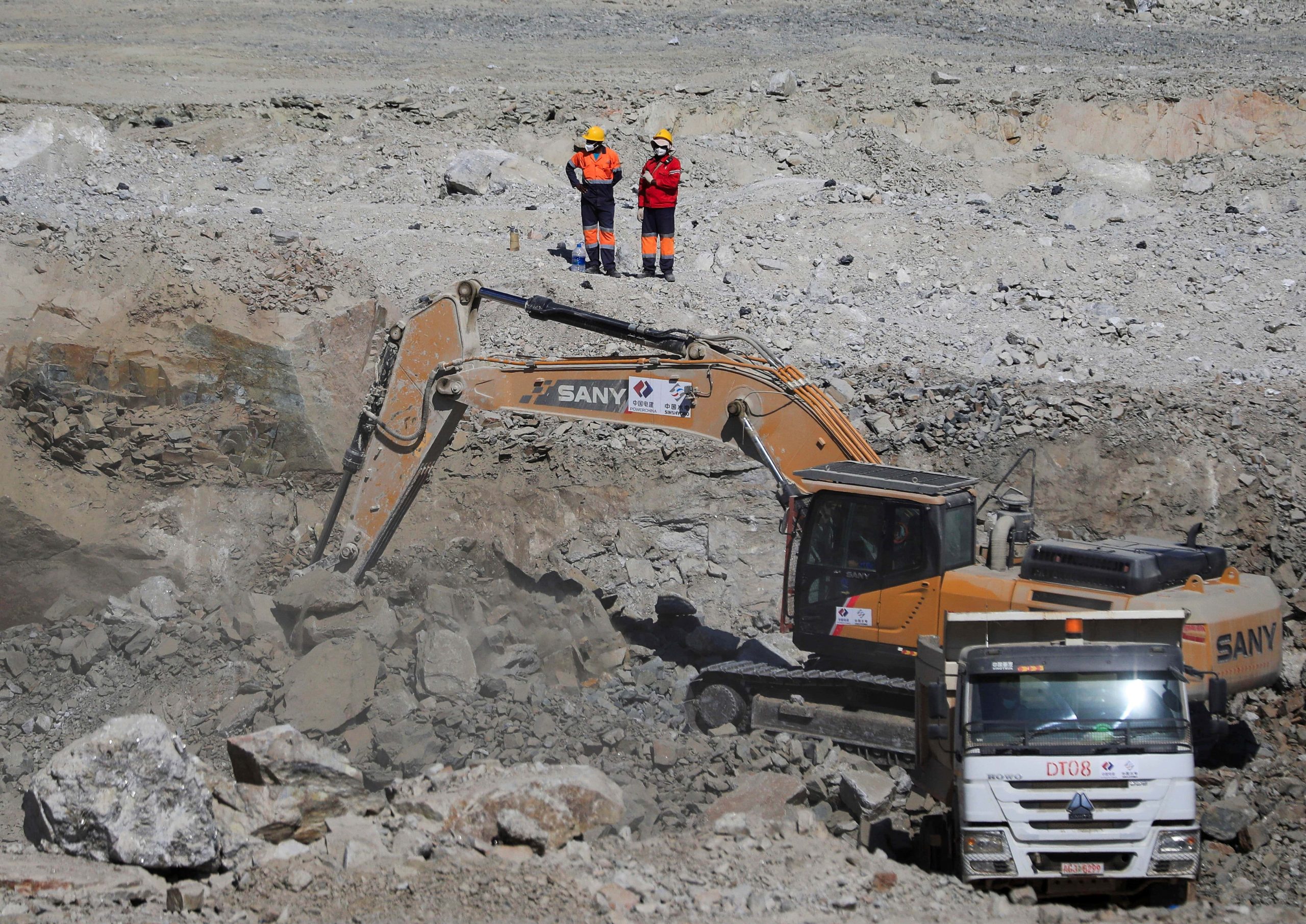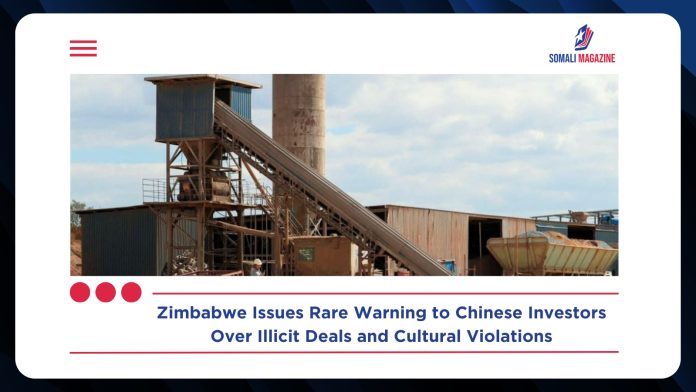Facebook Twitter (X) Instagram Somali Magazine - People's Magazine
In rare public stance, Zimbabwe warns errant Chinese investors, marking a dramatic shift in tone as the government moves to rein in misconduct by foreign businesses operating in the country. During the China-Zimbabwe Business Cooperation Roundtable held in Harare, Tafadzwa Muguti, Secretary for Presidential Affairs in the Office of the President and Cabinet, issued a stern warning to Chinese firms accused of financial malpractice, environmental degradation, and cultural insensitivity.
Muguti’s remarks broke from Zimbabwe’s traditionally warm embrace of Chinese investment under the “Look East” policy, which was adopted in 2003 to counter Western sanctions. He accused some Chinese companies of hoarding foreign currency, externalising undeclared earnings, and operating outside the formal banking system. “You don’t even have bank accounts. You’re keeping cash under your mattress, the floor, or the ceiling. But in China, you don’t do that,” Muguti said, warning that such practices threaten the country’s liquidity and economic stability.
He directed all foreign and local currency earnings to be deposited into Zimbabwe’s banking system and processed through the Reserve Bank of Zimbabwe (RBZ) for outbound remittances. Muguti also condemned the practice of Chinese nationals entering Zimbabwe as tourists and engaging in unlicensed business operations. Going forward, visa and permit applications from Chinese nationals will require an endorsement letter from the Chinese Embassy to ensure accountability.
Environmental violations were another flashpoint. Muguti cited disturbing reports of Chinese mining firms desecrating sacred sites and ancestral graves in pursuit of granite and gold. “That’s the highest form of disrespect—not only in Zimbabwean culture but in yours too,” he said, calling for immediate reforms and respect for local customs.

The government reiterated its beneficiation policy, mandating that all mineral exports—especially lithium—must undergo value addition within Zimbabwe. Muguti emphasized the country’s ambition to become a regional manufacturing hub for lithium batteries, supplying markets in South Africa, Zambia, Namibia, and beyond.
In response, Steve Ke Zhao, CEO of the China-Zimbabwe Exchange Centre, acknowledged the government’s frustrations but pointed to bureaucratic delays that hinder legitimate operations. He said many Chinese firms invest millions only to face challenges securing work permits and installing machinery, forcing them to operate informally. “They end up doing something illegal, not because they want to, but because the system is too slow,” Zhao explained.
Zhao stressed that most Chinese investors are genuine and committed to Zimbabwe’s development, but lack awareness of local laws and cultural expectations. His organization has launched workshops with banks and labour agencies to bridge this gap and promote compliance.
President Emmerson Mnangagwa has also weighed in, warning that foreign investors must contribute to community development or risk losing access to Zimbabwe’s mineral wealth. “If they don’t want to comply, then they better leave our minerals underground,” he said during a separate address, reinforcing the government’s zero-tolerance stance on exploitative practices.
The rare public rebuke signals rising tensions between Zimbabwe and its largest foreign investor bloc. While the government remains open to Chinese investment, it is now demanding transparency, cultural respect, and economic accountability. As Zimbabwe pushes forward with its anti-corruption and industrialization agenda, errant investors—foreign or domestic—are being put on notice.

